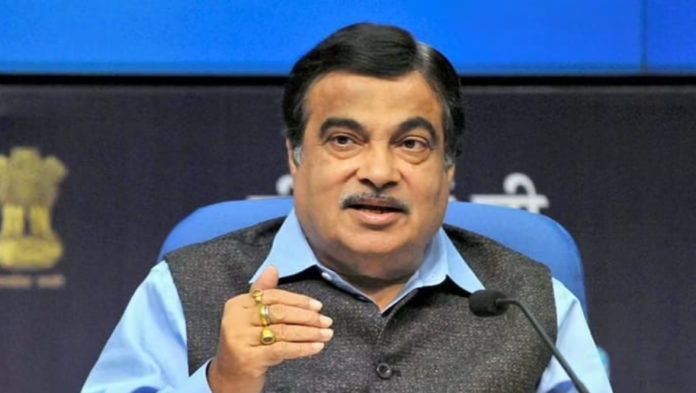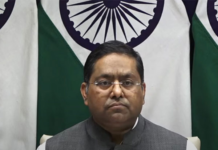New Delhi (NVI): India is committed to reducing its carbon emissions by 30 to 35 percent by 2030 as per the Paris Climate Agreement, Union Transport Minister Nitin Gadkari said today.
The Union Minister was addressing a virtual session on ‘India and the UK – Partners for Growth: Unlocking Sustainable and Climate-resilient Infrastructure Opportunities,’ organized by Federation of Indian Chambers of Commerce & Industry (FICCI), according to an official release.
Speaking at the meeting, Gadkari said that as per the Paris Climate Agreement, the Government of India is committed in reducing its carbon emissions by 30-35 percent by 2030.
“The UK is also committed to reducing its carbon emission to net-zero by 2050,” Gadkari added.
The minister also said that the partnership of India and the UK dates back many years and has a glorious history of working together on economy and infrastructure. “Taking lessons from history, this is time for us to act upon delivering a sustainable infrastructure without compromising on the values of ecology and environment,” he said.
Gadkari further said that as far as India is concerned, we have limited resources, a huge low-middle income population, demographic and cultural diversity but we also have a strong resolve for working towards a clean and green future.
“I strongly believe that societies must be liveable, workable, and sustainable. India has a surplus of solar energy potential that we can use for electricity generation,” he emphasized.
The minister also stated that the India and UK partnership on climate action can deliver substantial progress towards reducing emissions and helping towards resilient infrastructure globally.
He added that India-UK is exploring how to develop technology and the investment needed for the adoption of alternate and green energy sources.
“It is important to share experiences, collaborate on research and development and catalyse the private sector to invest in renewable energy,” Gadkari said.
Moreover, India is also taking several steps to achieve the nationally determined contribution targets for increasing renewable energy share through its ambitious target of achieving 450 megawatts (MW) renewable energy capacity by 2030. “One of the largest such expansion plans in the world is already underway,” he informed.
Gadkari also said that UK is the world leader in intelligent transportation systems, AI, GIS and GPS-based tools, and infrared surveillance systems.
This can be used in India’s largest road network can be facilitated with these advanced technologies for effective traffic movement and road asset management, he said, adding that, “We aim to learn success stories of each other to enhance our mutual knowledge as two great nations.”
At the meeting, UK International Champion on Adaptation and Resilience for the COP26 Presidency Anne-Marie Trevelyan said that India has taken several successful steps towards climate change. Like the UK, India has shown its adaptation plans are at the heart of its approach to climate change.
“Adaptation is the key focus of the India-UK partnership. Our common commitment to tackling climate change and the friendship between the two nations makes us ideal partners in finding solutions,” she added.
British High Commissioner to India Alex Ellis also said that one of the things which India has been a champion on is climate-resilient infrastructure in its neighbourhoods. That is what the UK also supports and will continue to support.
He further said that India’s scale and opportunities and the UK’s knowledge and expertise are a good combination.
-RJV








